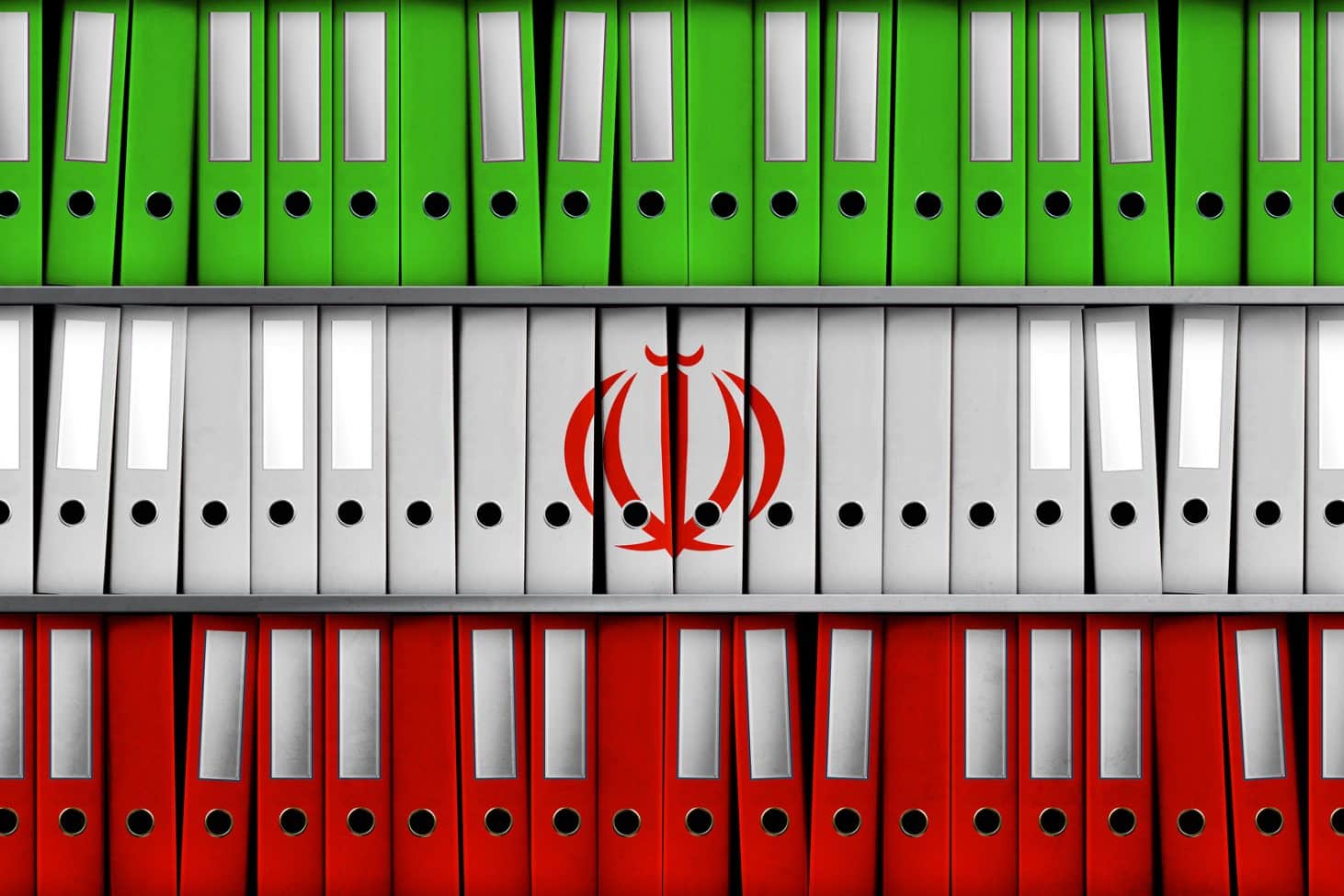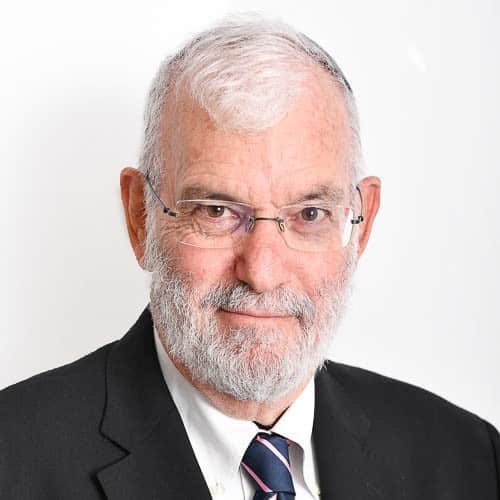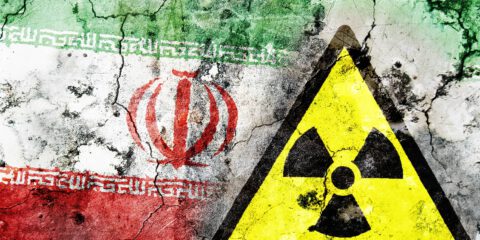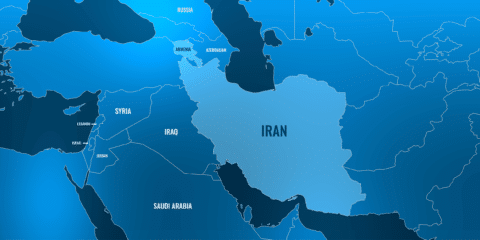Many criticized Prime Minister Benjamin Netanyahu’s unveiling of a secret Iranian nuclear archive as “nothing new” and “a performance.” But there was plenty new in his presentation, and it will have far-reaching implications.
Following last Monday’s unveiling by Prime Minister Benjamin Netanyahu of “half a ton” of Iranian files proving that Iran lied about its nuclear program, many criticized what they called “a performance.”
Of course, everyone was full of praise for the intelligence community, namely the Mossad, for obtaining the information. But they didn’t spare any criticism from the prime minister’s “show.”
Some warned that the public unveiling would undercut the Mossad’s operational capabilities, which of course are usually kept secret. But this operation was not one that could be kept secret from the enemy. The Iranians learned about it the moment they entered their secret warehouse and found it empty. The prime minister’s unveiling did not give away any important details, so that argument holds no water. However, unveilings should not become a habit; Mossad missions must remain covert.
The criticism does raise an important question: Who owns information seized by an intelligence agency? In a democratic country, it should be obvious that the information belongs to the state and not to the agency. The state, and its leaders, should be the ones to decide what to do with the information, of course with consideration for the needs of the intelligence community in mind. In particular, the state must not compromise the safety of intelligence agents or sources and must refrain from exposing their methods.
Every intelligence agency has a chief officer, and this officer’s concerns should certainly be heard. But woe is the state that lets its intelligence officers dictate its policy.
The prime minister needs to take all the considerations into account and formulate a decision based on his generally wider view. The intelligence agencies are there to serve the state’s needs, not the other way around. That is why they go to such great lengths to obtain the intelligence.
And now, the central argument against Netanyahu: There was no smoking gun in his presentation. He failed to prove that Iran violated the 2015 nuclear agreement. In fact, Netanyahu’s critics say, there was actually no new information, so the “performance” was unnecessary and will achieve nothing.
This line of criticism deserves a closer inspection.
There was indeed no “smoking gun” proving Iran violated the 2015 agreement. There could not possibly have been one, because the information seized spanned a period that ended in 2003, more than a decade before the 2015 deal. The material Netanyahu presented was probably concealed in the warehouse just before or immediately after the 2015 deal was signed. Naturally, it could not possibly prove or disprove anything that happened later. This argument is, therefore, absurd.
Furthermore, as Netanyahu has repeatedly said, even before unveiling the secret archive, the 2015 deal is a very good one for Iran, so why would Iran violate it?
Under the deal, the Iranians can legitimately develop the next generation of centrifuges, 10 times faster than the ones they had before, and advance their ballistic missile program to produce longer-range projectiles, because nowhere in the agreement does it say they cannot. And when the agreement expires, the Iranians will be able to extract all their materials from their nuclear warehouses and develop a nuclear bomb in no time, without anyone being able to stop them. So what possible incentive do they have to violate the deal?
In fact, it needs to be clear, Iran has no reason to violate the deal if it cares about its nuclear project. Actually, Iran needs to do everything in its power to preserve it. The reward will come in seven years, when it expires.
Also, was there really nothing new in Netanyahu’s presentation?
In my view, the unveiling introduced three new ideas, and I do not know everything that is in the seized materials. First, it proved that Iran’s nuclear program definitely existed. This is no longer just a claim that can be disputed (many have used the Iraq example, saying, “You were wrong about Iraq having weapons of massive destruction, so how can you be sure about Iran?”). The unveiling also discredited the claim that Iran’s ballistic missile program was not intended to carry nuclear warheads. This is new: The Iranians themselves admit they planned to build nuclear warheads and install them on missiles. Thanks to this new information, the dispute over what they did or did not intend to do is now over. This clarity is certainly something new. If the prime minister had staged his “performance” with the sole objective of ending this debate, it would have been enough.
It is now crystal clear: The Iranian planned and made serious efforts to build nuclear weapons. The powerful information unveiled from the Iranian archive shines a new light on Iran’s insistent uranium enrichment efforts, which Israel vehemently opposed and consistently fought against.
And there is another new development. It has now emerged that the Iranians lied on another critical issue: Their nuclear weapons-building capability. Thanks to the secret files, it is now clear that there is a massive gap between what the Iranians declared they had done (or had not done) and what they actually did in reality. If that’s not new, what is?
We can always argue that the working assumption was that the Iranians were lying, and therefore the inspection mechanisms outlined in the agreement are extremely stringent. But even those who believed Iran was lying were not aware of the extent. No inspection mechanism matched the reality revealed in the secret documents.
Had the signatories of the 2015 nuclear accord known what we know now, the details of the agreement would certainly have been different, especially the procedures governing the monitoring and inspection, because the starting point regarding Iran’s capability would have been different.
This is a big revelation. The discoveries that emerged from the archives should be enough to prompt extensive changes to the deal, if it remains in place. For example, the Iranians need to answer questions the West could not have known to ask without the information in the archive. I assume that questions only about the equipment that Iran still possesses and apparently has not destroyed, as the images in the archive suggest, will outnumber the total number of questions that Iran was asked before the agreement was reached.
Finally, the most basic new discovery: Iran safeguarded all its nuclear documents so that once the deal expires, it could pick up where it left off with research and production aimed at building nuclear weapons. The archive itself and its level of preservation are a real and worrying discovery. This raises questions about other features of the nuclear program that we did not know to ask about. No one knew the archive existed before Israeli intelligence agents located it. What else is Iran hiding? This is an important new question prompted by the revelation of the archive.
And for the final argument: The unveiling will achieve nothing. I have two things to say about that: One is that if you don’t try you don’t fail, but you also don’t change anything. The second is that it is best to wait and see whether things change. U.S. President Donald Trump has already spoken positively about Netanyahu’s unveiling, and European experts have traveled to Israel to study the findings. After this unveiling, it is no longer an option to ignore Israel’s warnings about Iran. So all the negative conclusions about this briefing are a bit premature, at the very least.
And finally, a technical note: The prime minister is the direct superior of the Mossad. If the operation had ended in failure, it would have been Netanyahu who would have taken the heat. It is only appropriate that he receive some of the credit for its success.
Published in Israel Hayom, 7.5.2018
JISS Policy Papers are published through the generosity of the Greg Rosshandler Family.
photo: Bigstock









 - בניית אתרים
- בניית אתרים